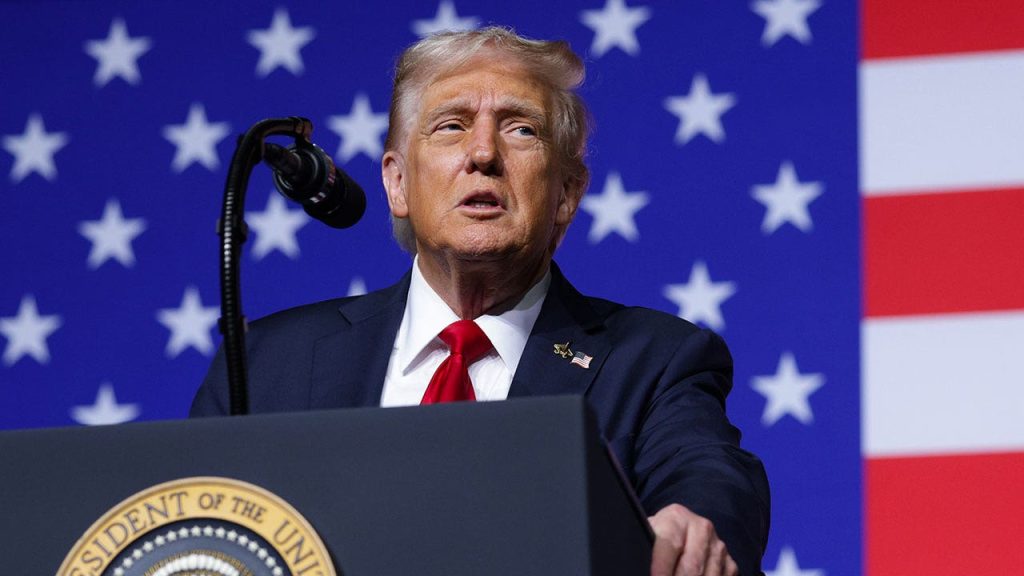Trump’s Gaza Peace Plan: A Pivotal Moment for Middle East Stability
In a decisive move that could dramatically reshape the ongoing conflict in Gaza, President Donald Trump has issued a 20-point peace plan that has garnered unprecedented support across the Middle East and beyond. Speaking to reporters, Trump established a three to four-day deadline for Hamas to accept the proposal, warning of “a very sad end” should the terrorist organization reject it. The plan, which Israeli Prime Minister Benjamin Netanyahu has already accepted, aims to end military operations in Gaza, disarm Hamas, secure the return of all 46 hostages, and establish a framework for rebuilding the war-torn region. This represents perhaps the most significant diplomatic breakthrough since the conflict began following the October 7 attacks.
The international reception to Trump’s peace initiative has been remarkably positive, with an unusual coalition of nations rallying behind the proposal. A joint statement from Saudi Arabia, Jordan, the United Arab Emirates, Indonesia, Pakistan, Turkey, Qatar, and Egypt not only welcomed the plan but specifically praised Trump’s balanced approach to addressing both Israel’s security concerns and Palestinian rights. The statement emphasized these nations’ readiness to “engage positively and constructively” toward finalizing and implementing the agreement. European powers have also voiced their support, with both British Prime Minister Keir Starmer and French President Emmanuel Macron endorsing the plan, despite their recent recognition of Palestinian statehood—a move Washington has opposed.
What makes this moment particularly critical is the convergence of support from nations that rarely find themselves on the same diplomatic page. Hamas negotiators have reportedly agreed to review the proposal “in good faith,” according to officials briefed on talks with Qatari and Egyptian intermediaries. The breadth of international backing creates unprecedented pressure on Hamas leadership to accept terms that could finally bring stability to a region devastated by months of intense conflict. This diplomatic alignment represents a rare window of opportunity where regional powers, despite their differences on other issues, have found common ground in supporting a path toward peace.
Within Israel, however, the plan has sparked division among Netanyahu’s governing coalition. Finance Minister Bezalel Smotrich condemned the agreement as a “resounding diplomatic failure,” suggesting it ignores the hard lessons of the October 7 attacks. His criticism raises questions about the stability of Netanyahu’s government should the peace process move forward. Interestingly, the prime minister has found unlikely allies in this moment, with opposition leader Yair Lapid declaring Trump’s proposal “the only plan with feasibility” given the complex interests and urgent timeline demanded by the hostage situation. Benny Gantz, leader of the Blue and White Party, similarly pledged his support, stating they “would not allow petty politics to sabotage the plan.”
The 20-point proposal itself represents a delicate balancing act, addressing Israel’s security demands while offering a pathway forward for Gaza’s reconstruction and governance. Though full details haven’t been publicly disclosed, reports suggest it includes provisions for the return of all hostages, the disarmament of Hamas as a military force, and international guarantees for rebuilding Gaza’s infrastructure. The plan apparently addresses Palestinian concerns about forced displacement and halts any potential annexation of the West Bank—issues that have been significant sticking points in previous negotiations. This comprehensive approach explains why it has managed to secure support from such a diverse coalition of international stakeholders.
As the deadline approaches, the world watches with cautious optimism, recognizing that this moment represents a critical juncture in the decades-long search for Middle East stability. Trump’s ultimatum places Hamas at a crossroads: accept terms that have gained unprecedented international backing or face potential isolation and intensified military pressure. For the families of hostages and civilians caught in the crossfire, the coming days could determine whether they will see loved ones returned and homes rebuilt, or whether the cycle of violence will continue. While skeptics point to the long history of failed peace initiatives in the region, the unusual breadth of support for this plan suggests a unique opportunity that, if seized, could finally bring a measure of peace to one of the world’s most intractable conflicts.


